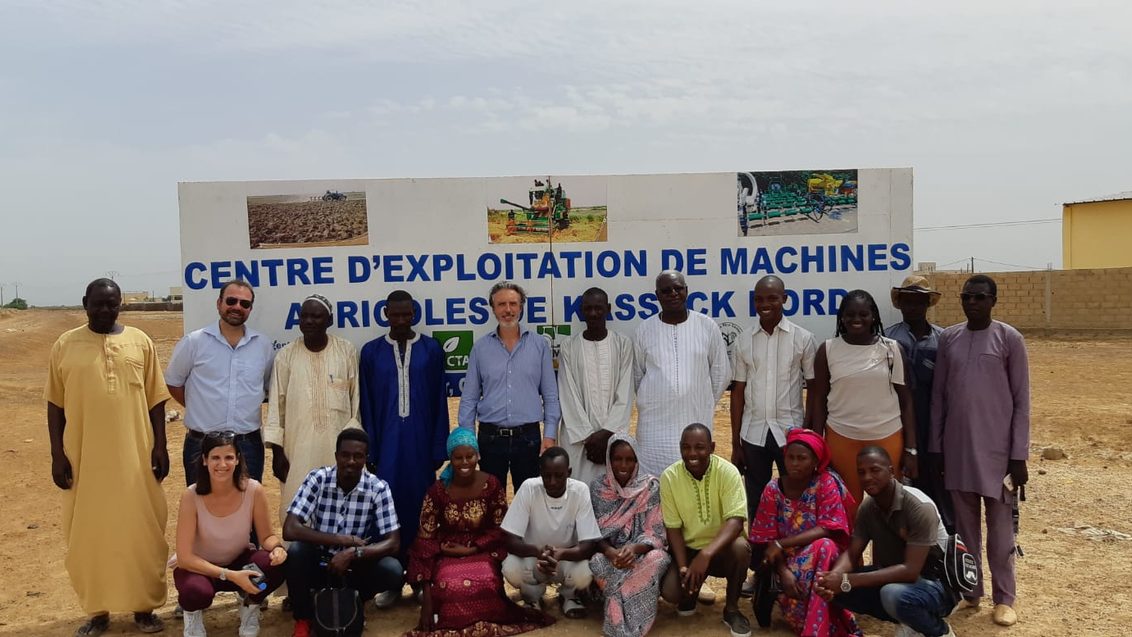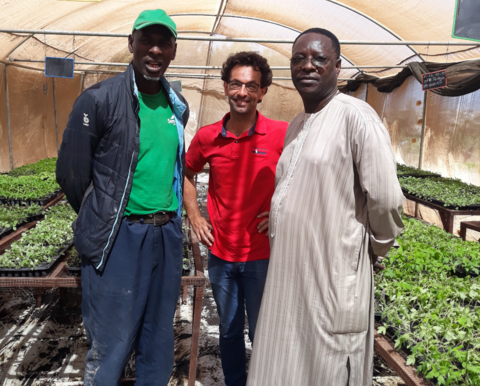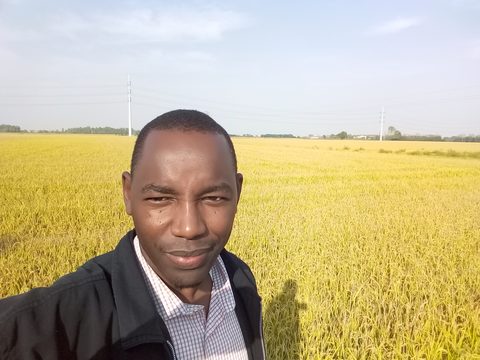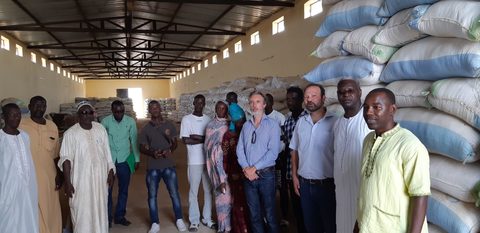Three key words and some advice to the young

Our Foundation began operations in Senegal in 2014. A team of twelve now covers a large area of the country. They help farmers access a range of agricultural services and better seeds and stimulate youth employment. AfricaRice is one of several important partners. Youssou Diagne has led our Senegalese team since the start and is now retiring to an advisory role. His successor as of April is Alassane Aw, hitherto head of our local Agriservices program. We interviewed them about key moments so far and possible future developments. We also asked for their advice to young people interested in agriculture. The interview was conducted in March 2020.
Read the French version of the interview
What brought you to the Foundation, and where did you work before?
Youssou Diagne (Y.D.): I joined after six years on two USAID* programs. My focus there was on agricultural diversification and economic growth. That made moving to the Foundation a natural step.
Alassane Aw (A.A.): I signed up in January 2015, about a year after Youssou. I had also been with USAID, based in Matam up in the north-east. A friend mentioned that the Syngenta Foundation was recruiting for a rice program. As that was a crop I’d already worked on, I sent off my CV. A few days later Youssou asked to interview me. I wasn’t sure how long the project would last, but I gave it a go – and am still around!
Which three words would you use to describe the Foundation’s work in Senegal?
Y.D.: The first that comes to mind is loyalty, commitment and, to use a French expression, rapport.
A.A.: Top of my list would be effective. The farmers we partner with recognize the Foundation’s role in improving their harvests, income, and access to agricultural material. We also have to stay flexible, adapting fast to their needs and the local socio-economic environment. It’s all about finding sustainable solutions – for instance with our CEMA machinery hire centers. My third word picks up on Youssou and commitment: our challenges and activities here are complex, but the whole team digs in so that the programs succeed. Two examples are our use of the digital RiceAdvice tool to create jobs for the young, and our Farmers’ Hubs for the next generation of ‘agripreneurs’.
Youssou, what particular memory of the Foundation will you be taking with you?
Italy is currently in the news for very sad reasons. But I look back with great pleasure on a visit to rice growers there in 2016. It was really interesting to see how farmers cultivate the crop there. I was very fortunate to travel with our consultant Marco Quadranti, who speaks fluent Italian and French, as well as the Foundation’s Agriservices Head Robert Berlin, Dominik Klauser from the R&D team and Alassane. A truly memorable educational tour!
Alassane, as you take the reins in Senegal, how do you see the Foundation developing there? What will you be concentrating on, and what do you most hope to achieve?
Our mid-term goal is to strengthen partnerships with the public and private sectors. That should enable us to scale up the models and innovations we’ve put in place that benefit farmers, and particularly the younger ones. Longer-term, we’ll be aiming to make our methods and interactions more systematic and standardized. That will benefit us across the Foundation’s workstreams, as well as our many different partners. Together we’ll then be able to use our resources better and achieve more. Personally, I shall be keeping a close eye on three particular aspects. The first are partnerships for funding and scale-up. The next is transferring technology and promoting innovations that meet our farmers’ needs. Two key areas there will be digital tools and soil health. My third focus will be on establishing Network Managers responsible for scale-up and sustainability. I hope that our work will give the Foundation greater visibility, both nationally and across West Africa. It would be great if the government and other potential partners came knocking at our door for expertise!
Opportunities for rural youth are a major focus of Foundation activities, not least in West Africa. What is your advice to young people who could potentially play a big role in and around agriculture?
Y.D.: Perseverance is essential! So the first step is to think hard about one’s motivation. Ask yourself if you’ve really got the passion that will take you through all the many difficulties in this sector. If your answer is «YES!», then the good news is that the Foundation and many other organizations are here to help. The future of farming depends on encouraging enterprising young people to seize the great business opportunities on offer. That’s a huge responsibility, but it’s one the Foundation and others are determined to bear.
A.A.: I absolutely agree. You have to stay patient and believe in what you’re doing. As we say in Senegal: «To grow, you have to start small».
And to finish: What’s going through your minds as you change roles?
Y.D.: At the Foundation internationally, I particularly want to thank Robert Berlin and our Director Simon Winter for all their support. It has been a real pleasure working with them. I very much appreciate their management style based on trust and empowerment. I’d also like to thank the team in Senegal for everything we’ve shared in the last five years. Looking ahead, I shall continue to support the Foundation’s work here in the area of government affairs, notably with our crucial partners at the Ministry of Agriculture. I’ll also be available to colleagues in Mali and Nigeria if they need support. What else? Well, my daughter and I are thinking of opening a restaurant. That has always been a dream of mine, as I love eating!
A.A.: My thanks go to Simon and Robert for their confidence in me. Stepping up like this has also been made possible by Youssou’s coaching skills. Now I’m looking forward to working with the team to achieve our objectives.
*USAID: The United States Agency for International Development (USAID) is an independent agency of the United States federal government that is primarily responsible for administering civilian foreign aid and development assistance.



